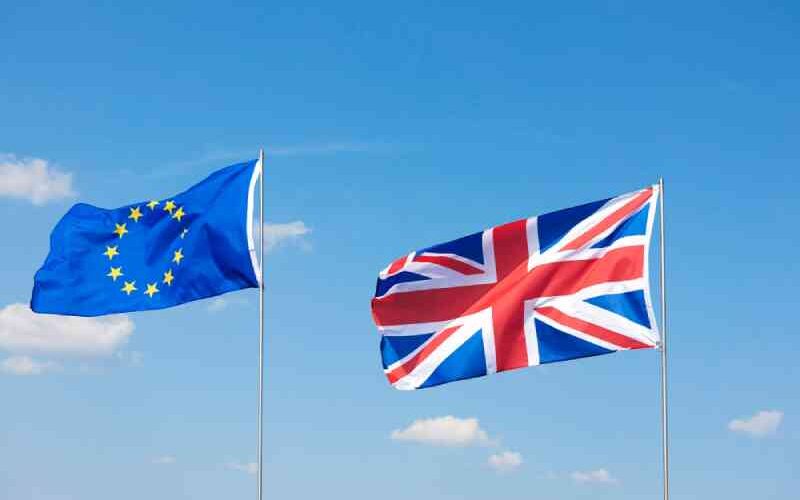What is Brexit, and when and why did it happen?
Britain’s decision to leave the European Union (EU) through a referendum on June 23, 2016 is called Brexit, and it is a combination of British and exit. Greenwich Mean Time officially left the European Union at 11 p.m. on January 31, 2020.
On December 24, 2020, the European Union and the United Kingdom tentatively agreed to a free trade agreement that would ensure the free trade of goods without restrictions or tariffs. However, important aspects of future interactions, such as the service sector, which makes up 80% of the UK economy, are still unknown. This avoided a no-deal Brexit, which would have severely harmed the UK economy.
The British Parliament approved the provisional agreement on January 1, 2021.
On April 28, 2021, it was approved by the European Parliament. Trade between the EU and the UK still requires customs checks, even if the Trade and Cooperation Agreement (TCA) eliminates product restrictions and tariffs. This demonstrates that the UK does not conduct business as efficiently as it did while it was a member of the EU (Hayes, 2021).
How did Brexit impact the UK?
Brexit has already had a negative impact on the UK. Many businesses relocated their corporate headquarters to the European Union when the economy stagnated. The challenges encountered in terms of growth and employment are as follows: Brexit would have had an impact on Scotland, Ireland, and London.
Jobs
Brexit hurts young employees in the UK. By 2030, Germany is predicted to have a 3 million-person expert worker deficit, but after the Brexit announcement, British workers would find it difficult to find these positions. Employers are struggling to fill positions since the number of EU-born people leaving the UK increased by 95% in 2017. Low-skilled and middle-skilled jobs have the biggest impact on this.
Growth
The damage to the UK’s economic growth is the biggest drawback of Brexit. Much of this is due to the uncertainty surrounding the end result. The UK’s growth rate has declined due to uncertainty about Brexit, from 2.4% in 2015 to 1.6% in 2019. The UK government assumed that Brexit would reduce the UK’s growth by up to 6.7% over 15 years. It was supposed to have current free trade conditions but limited immigration.
The British pound was worth $1.48 on referendum day but only $1.36 the following day. Exports benefit from the pound’s decline, but imports cost more as a result. It has not yet recovered from the state it was in prior to Brexit’s onset.
Transaction
The UK must negotiate new trade agreements with countries that have not signed up for EU membership but have already signed over 45 trade agreements with more than 70 countries.
Brexit is a vote against globalization. Brexit has thereby reduced the European Union’s ability to promote integration. Right-wing anti-immigrant party supporters are anti-EU, particularly in France and Germany. They could compel an anti-EU vote if they had strong enough justifications. One of those nations would fall apart if it left the EU because it would lose its strongest economy.
London
London’s growth in London’s financial center has fallen due to Brexit, and it has also reduced business investment by 11% between 2016 and 2019.
The number of international companies trying to use London as an English-speaking European economy has decreased, and the possibility is also low. An example of this is a bank called Bank of America, which moved 400 bankers to a brokerage office in Paris and 100 to a Dublin office.
Scotland
Scotland is a country against Brexit. They thought the UK had to be in the EU, and it was best for the UK and Scotland. If they want to leave the UK, they have to have a plebiscite. And after they leave the UK, they could apply for EU membership.
Ireland
Northern Ireland belongs to the United Kingdom. The Republic of Ireland, which shares the border, remains part of the European Union and avoids customs borders that arise between the two Irish countries due to that agreement (Amadeo, 2022).
How did Brexit impact the EU?
The vote against globalization is Brexit. Thus, the power of the European Union in favor of integration has been undermined by Brexit. Members of the right-wing anti-immigrant party have anti-EU tendencies, especially in France and Germany. If they have sufficient grounds, they could force an anti-EU vote. If one of those countries leaves the EU, it would lose its strongest economy, leading to disintegration.
Whereas most EU citizens still strongly back the Union, according to a Pew Research Center survey of 10 European countries, about 75% said the EU encourages peace, and 55% think the EU helps prosperity. Besides, more than a third believe that Britain’s role is diminishing (Amadeo, 2022).
Conclusion
With concerns that it received few benefits from the EU, the UK ultimately voted to leave the EU in a referendum in January 2020. But the UK saw a lot of changes after quitting the EU. Global banks and corporations started to leave the UK as the country’s economy started to severely stagnate. Prices in the UK started to skyrocket as a result, and the phrase “Bregret” has now evolved to express sorrow over Brexit. The British prime minister promised to create the conditions for an independent nation nonetheless. We’ll have to wait and see, he continued, if the UK breaks away from the EU and develops into a major economic force.
References
Amadeo, K. (2022). What Was Brexit, and How Did It Impact the UK, EU, and the US? [online] The Balance. Available at: https://www.thebalancemoney.com/brexit-consequences-4062999 [Accessed 19 July 2023].
Hayes, A. (2021). Brexit. [online] Investopedia. Available at: https://www.investopedia.com/terms/b/brexit.asp [Accessed 19 July 2023].
